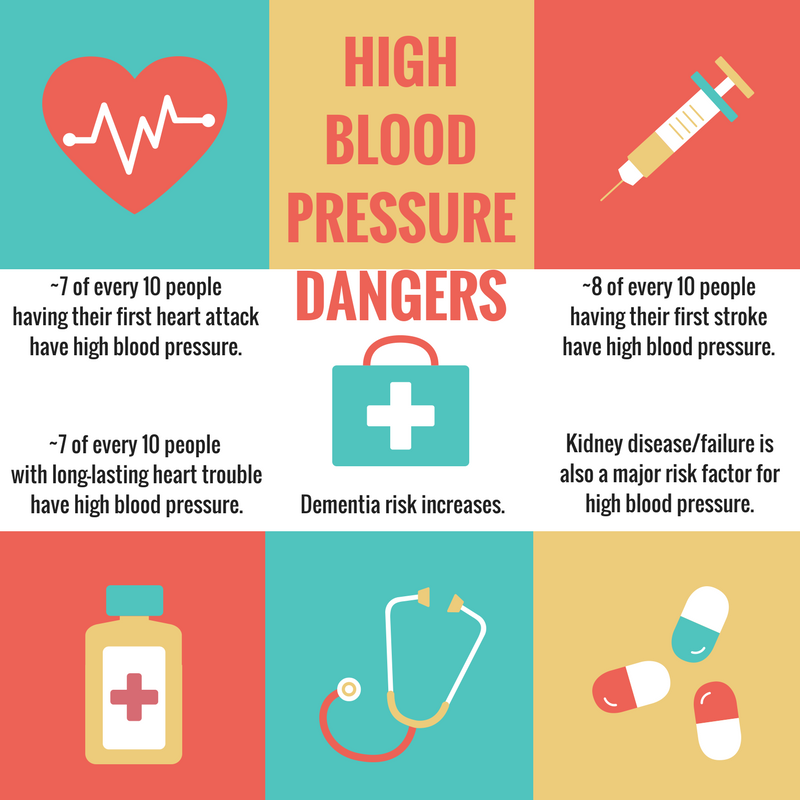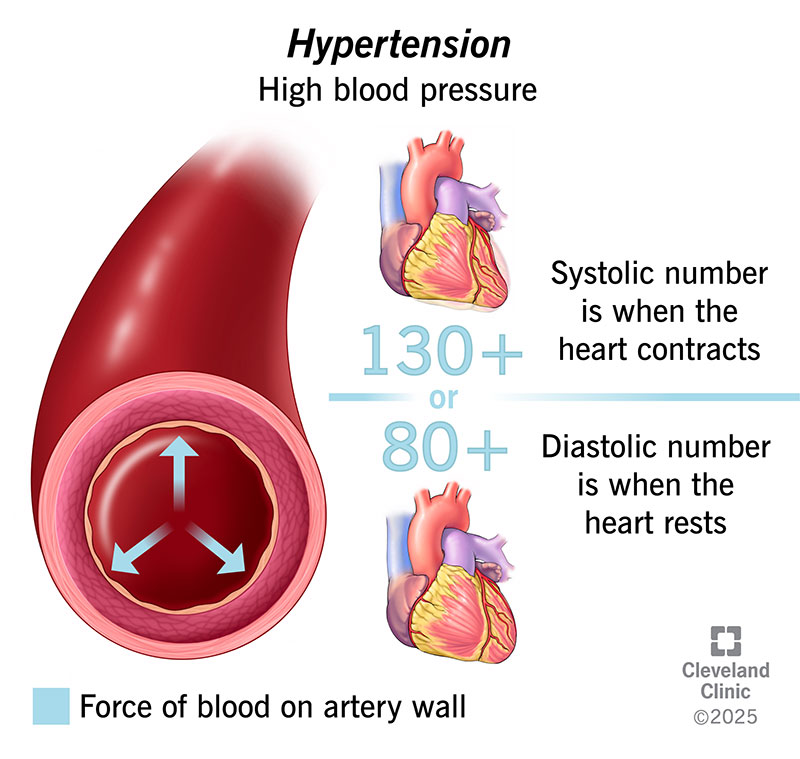High blood pressure treatment involves lifestyle changes, such as reducing salt intake and exercising regularly. Medications like diuretics and calcium channel blockers may also be prescribed.
It's important to manage stress, maintain a healthy weight, and monitor blood pressure regularly. In severe cases, emergency treatment may be necessary to prevent complications. Seeking guidance from healthcare professionals is crucial for effective management of high blood pressure. By combining natural remedies with prescribed medications, individuals can improve their overall health and reduce the risk of complications associated with hypertension.
Regular exercise, a balanced diet, and stress management techniques play a key role in controlling high blood pressure levels.
Introduction To High Blood Pressure
Discover effective High Blood Pressure Treatment options, including lifestyle modifications, medications, and emergency care. Explore natural remedies, prescribed treatments, and the importance of lifestyle changes in managing hypertension effectively. Consult healthcare professionals for personalized guidance on treating high blood pressure.
The Basics Of Hypertension
High blood pressure, also known as hypertension, is a common condition that affects millions of people worldwide. It occurs when the force of blood against the walls of your blood vessels is too high, which can cause damage to your arteries over time. Blood pressure is measured in millimeters of mercury (mm Hg) and is recorded as two numbers: systolic pressure (the top number) and diastolic pressure (the bottom number). A normal blood pressure reading is typically around 120/80 mm Hg. However, if your blood pressure consistently reads at 130/80 mm Hg or higher, you may be diagnosed with hypertension. There are two types of hypertension: primary (essential) hypertension and secondary hypertension. Primary hypertension is the most common type and has no identifiable cause. Secondary hypertension, on the other hand, is caused by an underlying medical condition such as kidney disease or obstructive sleep apnea.
The Risks Of Untreated High Blood Pressure
If left untreated, high blood pressure can lead to a number of serious health complications, including heart disease, stroke, kidney damage, and vision loss. It's important to get your blood pressure checked regularly by a healthcare professional and to follow their recommended treatment plan if you have hypertension. In addition to medical treatment, lifestyle changes can also help to manage high blood pressure. These can include reducing your salt intake, exercising regularly, limiting alcohol consumption, and maintaining a healthy weight. Natural remedies such as meditation, deep breathing exercises, and warm baths can also help to lower blood pressure quickly in the short term. Overall, the key to managing high blood pressure is to be proactive about your health and work closely with your healthcare provider to develop an effective treatment plan. By making lifestyle changes and taking any prescribed medications, you can reduce your risk of serious health complications and improve your overall quality of life.
Lifestyle Modifications
When it comes to managing high blood pressure, lifestyle modifications play a crucial role in controlling and improving the condition. By making simple changes in daily habits and routines, individuals can effectively lower their blood pressure levels and reduce the risk of complications.
Dietary Changes For Blood Pressure Control
Adopting a heart-healthy diet is essential for managing high blood pressure. Focusing on nutrient-rich foods like fruits, vegetables, whole grains, and lean proteins can help lower blood pressure levels.
Physical Activity And Its Impact
Regular exercise is key in managing high blood pressure. Engaging in physical activities such as brisk walking, cycling, or swimming can help improve cardiovascular health and lower blood pressure.
Weight Management
Managing weight is a crucial aspect of controlling high blood pressure. Obesity and excess weight can significantly increase the risk of developing hypertension. Therefore, focusing on weight management through healthy lifestyle choices and appropriate strategies is vital for individuals with high blood pressure.
The Link Between Obesity And Hypertension
Obesity is strongly linked to the development of hypertension. Excess body weight puts additional strain on the heart, leading to an increase in blood pressure. Additionally, fat accumulation around vital organs can disrupt their normal functioning, contributing to hypertension. Addressing obesity through effective weight management strategies is essential in controlling high blood pressure.
Strategies For Healthy Weight Loss
When it comes to healthy weight loss, it's important to focus on sustainable and long-term approaches. Incorporating a balanced diet, regular physical activity, and lifestyle modifications can aid in achieving and maintaining a healthy weight. By adopting healthy habits, individuals can not only manage their weight effectively but also reduce the risk of developing or worsening hypertension.

Credit: www.siumed.edu
Stress Reduction Techniques
When it comes to managing high blood pressure, incorporating stress reduction techniques is crucial. Effective stress management habits and mindfulness and meditation practices can significantly contribute to lowering blood pressure levels and improving overall health.
Mindfulness And Meditation
Mindfulness and meditation techniques have been shown to be effective in reducing stress and promoting relaxation. By focusing on the present moment and engaging in deep breathing exercises, individuals can alleviate the mental and physical strain that contributes to high blood pressure. Studies have demonstrated that regular practice of mindfulness and meditation can lead to lower blood pressure levels and improved cardiovascular health.
Effective Stress Management Habits
Developing effective stress management habits is essential for individuals looking to lower their blood pressure. Incorporating practices such as regular physical exercise, maintaining a healthy diet, getting an adequate amount of sleep, and engaging in relaxation techniques can help reduce stress levels and promote overall well-being. Furthermore, participating in activities that bring joy and relaxation, such as spending time with loved ones, engaging in hobbies, and practicing gratitude, can have a positive impact on stress reduction and blood pressure regulation.
Medications For Hypertension
When it comes to managing high blood pressure, medications play a crucial role in controlling and reducing elevated blood pressure levels. Understanding the various medications used for hypertension can help individuals make informed decisions about their treatment plan. Let's explore the commonly prescribed blood pressure drugs and the significance of drug combinations in managing hypertension.
Commonly Prescribed Blood Pressure Drugs
Several classes of medications are commonly prescribed to help lower blood pressure. These include:
Diuretics: These medications help the body eliminate sodium and water, reducing blood volume and subsequently lowering blood pressure.
Angiotensin-Converting Enzyme (ACE) Inhibitors: ACE inhibitors relax blood vessels by preventing the production of angiotensin II, a hormone that narrows blood vessels.
Angiotensin II Receptor Blockers (ARBs): ARBs work by blocking the action of angiotensin II, leading to blood vessel relaxation and lowered blood pressure.
Calcium Channel Blockers: These medications prevent calcium from entering the heart and blood vessel cells, causing the vessels to relax and widen.
Beta-Blockers: By reducing the heart rate and the heart's workload, beta-blockers help lower blood pressure.
Understanding Drug Combinations
Combining different classes of medications can often be more effective in managing high blood pressure than using a single drug. Some common drug combinations include:
ACE Inhibitors and Diuretics: This combination helps reduce blood volume and relax blood vessels simultaneously.
ARBs and Calcium Channel Blockers: By targeting different mechanisms, this combination can effectively lower blood pressure.
Beta-Blockers and Diuretics: These drugs combined can effectively reduce both heart rate and blood volume.
Credit: my.clevelandclinic.org
Natural Remedies And Supplements
High blood pressure, or hypertension, can be managed effectively with natural remedies and supplements. These alternative treatments can complement traditional approaches and promote overall heart health. Here are some natural remedies and supplements that have shown promise in managing high blood pressure.
Herbal Treatments And Their Efficacy
Herbal treatments have been used for centuries to support cardiovascular health. Some herbs, such as garlic, hawthorn, and ginger, have shown potential in lowering blood pressure. Garlic contains allicin, a compound with blood pressure-lowering effects, while hawthorn may help dilate blood vessels, reducing strain on the heart. Ginger has been studied for its ability to improve blood circulation. While these herbs may offer benefits, it's essential to consult a healthcare professional before incorporating them into your treatment plan.
Potassium, Magnesium, And Heart Health
Potassium and magnesium play crucial roles in maintaining heart health and regulating blood pressure. Potassium helps balance the effects of sodium and relaxes blood vessel walls, while magnesium supports proper muscle function, including the heart muscle. Foods rich in potassium include bananas, spinach, and avocados, while magnesium can be found in nuts, seeds, and leafy greens. Additionally, supplements of these essential minerals may be considered under the guidance of a healthcare provider.
Monitoring And Home Care
When managing high blood pressure, monitoring and home care play a crucial role in maintaining optimal health. Self-monitoring blood pressure and knowing when to seek professional care are key aspects of effective treatment.
Self-monitoring Blood Pressure
Regular monitoring of blood pressure at home empowers individuals to track their readings and make informed decisions about their health. It helps in identifying any fluctuations early on and allows for timely intervention.
When To Seek Professional Care
If blood pressure readings consistently remain high despite lifestyle modifications.
In case of experiencing severe symptoms such as chest pain, severe headache, or vision problems.
When prescribed medications are not effectively controlling blood pressure levels.
Seeking professional care ensures that appropriate medical interventions can be implemented to manage high blood pressure effectively.
Managing Hypertensive Crises
Effectively managing hypertensive crises involves prompt medical intervention to stabilize blood pressure levels. Treatment may include intravenous medications and close monitoring to prevent serious complications associated with dangerously high blood pressure. It is crucial to seek immediate medical attention during hypertensive emergencies to prevent organ damage.
Managing Hypertensive Crises is crucial for individuals with high blood pressure. It involves identifying and treating hypertensive urgency and emergency situations. Hypertensive urgency refers to a situation where blood pressure readings are very high, but there are no signs of organ damage. On the other hand, hypertensive emergency is when blood pressure readings are dangerously high and there are signs of organ damage. In this section, we will discuss how to identify these situations and the immediate actions and long-term solutions for managing them. Identifying Hypertensive Urgency and Emergency Hypertensive urgency can be identified through symptoms such as severe headache, shortness of breath, and nosebleeds. However, these symptoms do not indicate organ damage. In contrast, hypertensive emergency is characterized by severe symptoms like chest pain, confusion, seizures, and vision changes, which indicate organ damage. It is crucial to seek immediate medical attention in case of hypertensive emergency. Immediate Actions and Long-Term Solutions Immediate actions for hypertensive urgency include taking prescribed medications, reducing salt intake, and engaging in relaxation techniques like deep breathing. For hypertensive emergency, the immediate action is to seek emergency medical attention. Long-term solutions for managing high blood pressure involve lifestyle modifications such as regular exercise, maintaining a healthy weight, and reducing stress levels. Moreover, individuals can consider medications such as renin inhibitors, calcium channel blockers, and diuretics to manage high blood pressure. These medications work by reducing blood volume and relaxing blood vessels, thus reducing blood pressure. However, one should always consult a healthcare professional before taking any medication. In conclusion, managing hypertensive crises is crucial for individuals with high blood pressure. It involves identifying hypertensive urgency and emergency and taking immediate actions to manage the situation. Long-term solutions involve lifestyle modifications and medications. By following these steps, individuals can manage their high blood pressure effectively and improve their overall health and well-being.
Advancements In Treatment
Advancements in the treatment of high blood pressure have led to significant improvements in managing this condition. Research on new hypertension therapies and the future of blood pressure management offer promising prospects for individuals dealing with this health concern.
Research On New Hypertension Therapies
The continuous evolution of medical research has paved the way for the development of innovative therapies for high blood pressure. Scientists are exploring novel approaches, including advanced medications and non-pharmacological interventions, to effectively control and treat hypertension.
The Future Of Blood Pressure Management
The future of blood pressure management is characterized by a shift towards personalized treatment strategies. With the emergence of precision medicine, healthcare providers can tailor therapies to suit the unique needs of each patient, maximizing the efficacy of treatment while minimizing potential side effects.

Credit: www.everydayhealth.com
Frequently Asked Questions
How Can I Bring My Blood Pressure Down Quickly?
To bring your blood pressure down quickly, try meditating or deep breathing, taking a warm bath, and reducing stress levels. Additionally, focus on losing weight, exercising regularly, eating a healthy diet, limiting salt intake, and monitoring your blood pressure regularly.
How Can I Fix My High Blood Pressure At Home?
To fix high blood pressure at home, focus on: losing weight, exercising regularly, eating a healthy diet, reducing salt intake, limiting alcohol, getting enough sleep, managing stress, and monitoring blood pressure regularly.
What Is The Best Treatment For High Blood Pressure?
The best treatment for high blood pressure includes a healthy diet, regular exercise, stress management, and medication. Making lifestyle changes such as reducing salt and alcohol intake is also important. Additionally, monitoring blood pressure at home and getting regular checkups are essential.
How Can I Cure My High Blood Pressure Naturally?
You can cure high blood pressure naturally by regularly exercising, reducing your sodium intake, drinking less alcohol, eating more potassium-rich foods, cutting back on caffeine, managing stress, eating dark chocolate or cocoa, and losing weight if necessary. Incorporating these lifestyle changes into your daily routine can help lower your blood pressure without the need for medication.
Conclusion
Managing high blood pressure requires a holistic approach. By making lifestyle changes, such as reducing salt intake, exercising, and maintaining a healthy weight, one can effectively control hypertension. It's important to work closely with healthcare professionals and follow prescribed treatments for long-term health benefits.




0 Comments